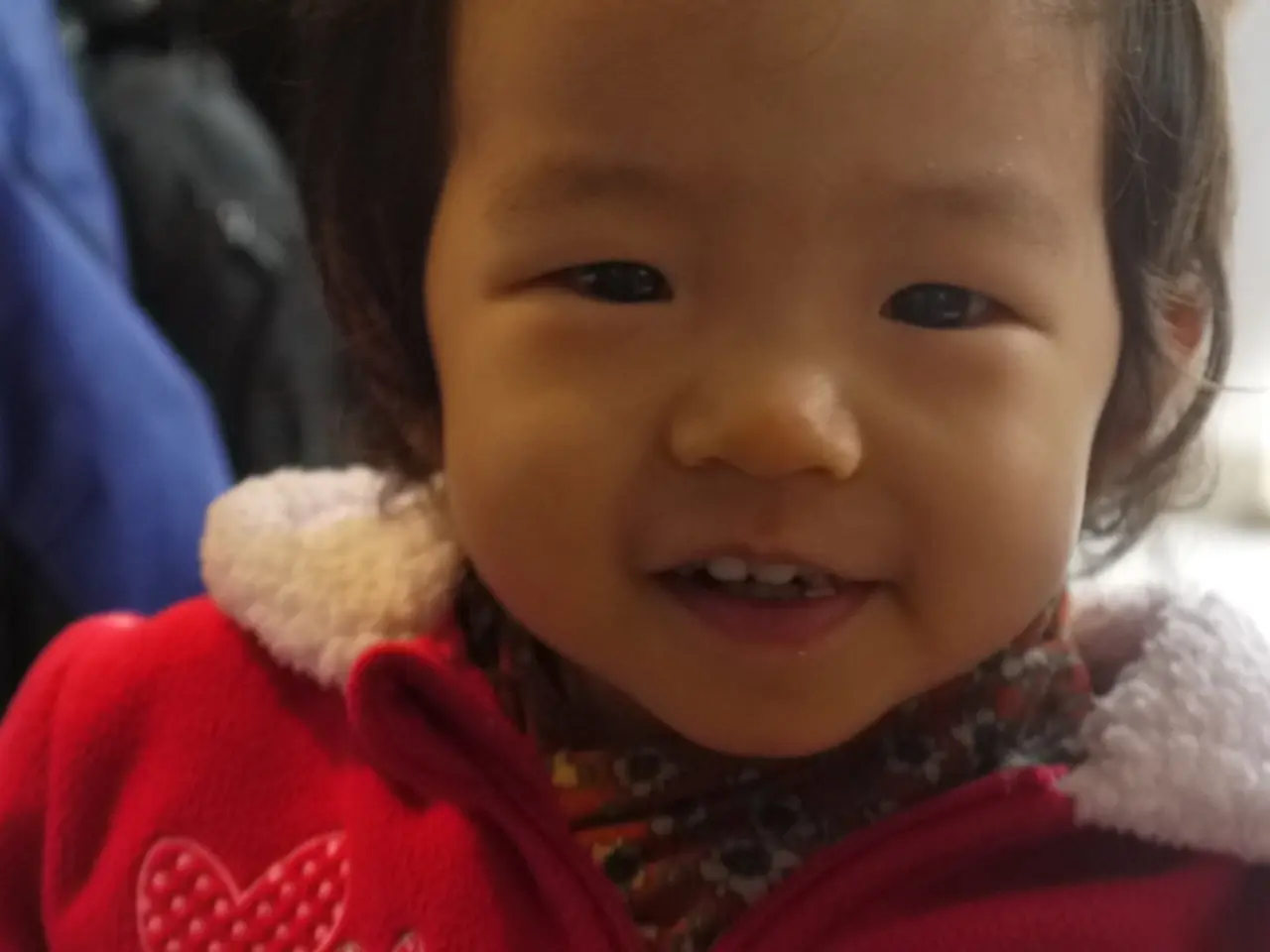Developmental Milestones for Babies Aged 0-3 Months in Nigeria
The first three months of a baby's life in Nigeria are filled with important milestones. To ensure a nurturing environment that promotes their development, parents can follow practical tips tailored to this early stage.
Milestones from 0-3 months
Physical Milestones
Babies start to develop muscle strength in the neck and upper body, lifting and holding up their head briefly when prone. They gain more control over head movements, and by around 3 months, they begin to show improvements in head control.
Cognitive Milestones
Babies start to recognize patterns and show interest in faces and bright colours. They respond to sounds by turning their head, and by around 6-8 weeks, they start to smile socially.
Communication Milestones
Newborns express needs mainly through crying; by 6-8 weeks, they start cooing and making vowel-like sounds, as well as responding to voices with eye contact and facial expression.
Motor Skill Milestones
Reflexes such as grasping, rooting, and sucking continue, while voluntary movements become smoother, including better hand-eye coordination and beginning to bat at objects.
Tips to Encourage and Support Progress
Physical Support
Provide supervised tummy time several times daily to strengthen neck, shoulders, and upper body muscles, which aids head control. Using a rolled-up towel or cushion can help support the baby during tummy time and encourage rolling over.
Cognitive Engagement
Show high-contrast images or objects, maintain face-to-face interaction, and talk or sing to your baby to stimulate attention and brain development. Placing toys or colourful objects just out of their reach can motivate them to extend their legs and attempt to reach for them, promoting leg strength development.
Encourage Communication
Respond promptly and warmly to baby’s coos and cries to build early social interaction and language foundations. Engaging in conversations with the baby, mimicking their sounds, and using simple words or phrases can help with language development.
Establish Routines
Consistent sleep and feeding schedules help create a secure environment; by 3 months, babies typically need around 15.5 hours of sleep daily with multiple naps spaced by roughly 2-hour awake windows.
Cultural Context
Nigerian parents can incorporate familiar lullabies, local language sounds, and culturally relevant toys or objects to enrich the baby’s environment.
By keeping track of these milestones and providing a nurturing environment, parents can ensure healthy development. Celebrating each milestone and enjoying the precious moments during this crucial development stage is crucial.
- Incorporating familiar lullabies and local language sounds into the nursery can contribute to the baby's emotional development and help create a comforting environment.
- To support the baby's health, parents should prioritize breastfeeding, ensuring a balanced and nutritious diet for their overall well-being.
- Encouraging safe playtime by choosing age-appropriate toys can aid in the baby's motor skill development and cognitive growth.
- For emotional development, parents should engage in loving bonding activities, such as reading, singing, or cuddling with their baby during playtime.
- By implementing a safe sleeping environment with a firm mattress, a crib that meets safety standards, and no loose bedding, parents can prioritize the baby's safety during sleep.
- To promote the baby's behavior and learning, parents can participate in educational activities, such as reading books, teaching simple signs, or singing alphabet songs during playtime.
- By creating a home-and-garden environment that is clean, organized, and filled with health-and-wellness resources, parents can provide a nurturing atmosphere conducive to the baby's development.
- Embracing a parenting style that focuses on positive reinforcement can help the baby to learn appropriate behavior and develop a sense of self-worth.




